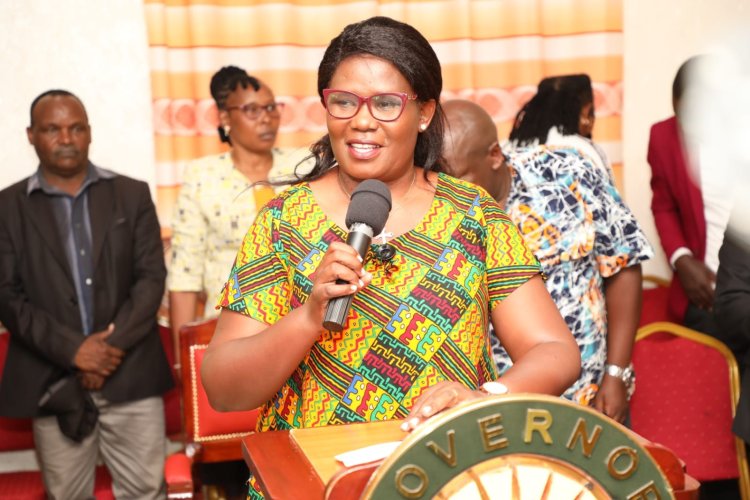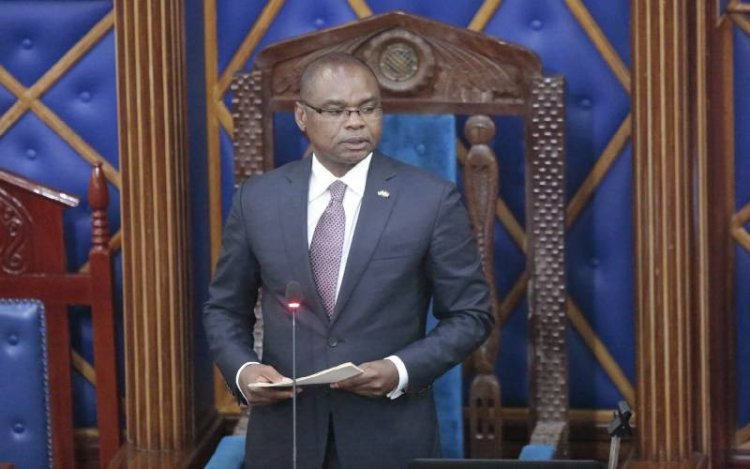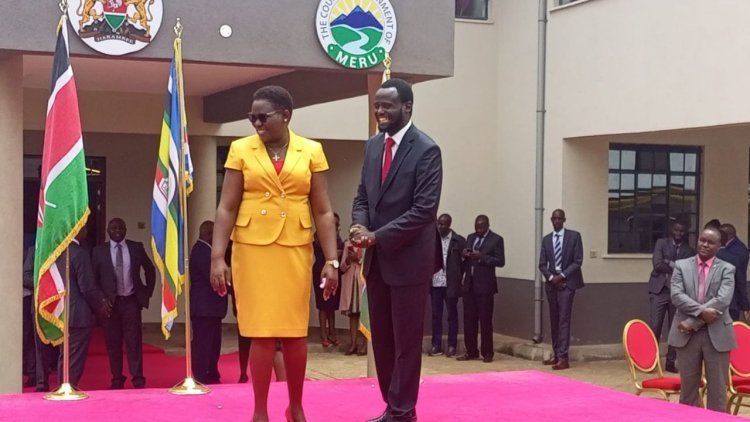How Senate Could Save Kawira Mwangaza From Impeachment
The Senate has set Tuesday, December 20 as the date for its Special Sitting in Parliament to consider the impeachment motion...

Meru Governor Kawira Mwangaza is now relying on the Senate to provide last-minute salvation following her impeachment by the Meru County Assembly on Wednesday, December 14.
A total of 67 out of 69 Members of the County Assembly (MCAs) voted to oust the embattled governor, a big blow to her after the court saved her from the first impeachment motion.
The Senate has set Tuesday, December 20 as the date for its Special Sitting in Parliament to consider the impeachment motion, a matter which will see the senators recalled from their recess that was meant to last until February 2023.

Senate speaker Amason Kingi during his maiden speech on September 8, 2022. /STANDARD DIGITAL
Senate Speaker Amason Kingi, through a gazette notice, announced that the sitting followed a request by the Senate Majority leader Aaron Cheruiyot and Meru County Assembly speaker Ayub Bundi to deliberate on the matter.
“Please note that the Speaker shall call for a Special Sitting of the Senate to read out the charges and resolutions of the county assembly against the governor," the Senate stated Thursday, December 15.
"The Senate’s consideration of the impeachment shall commence, as per the third schedule of the Standing Orders and Section 33 of the County Government’s Act."
The Senate could provide Governor Mwangaza with a way out of her woes as well as the danger of affirming her impeachment as passed by the County Assembly.
As enshrined in the 2018 Impeachment Bill, the Senate, by resolution, may appoint a special committee comprising 11 Senators to investigate the matter and report to the House within ten days on whether it finds the allegations against Mwangaza to have been substantiated.
If the Senate chooses to consider the impeachment motion as a House, a determination within ten days of its first meeting is made.
Within two days of the meeting, the Clerk of the Senate will invite Mwangaza to appear before the House. She will also be allowed the chance to defend herself throughout the investigations.
Should the Senate defeat the impeachment motion, it shall not be reintroduced on similar grounds, until after three months. However, should it uphold the motion, Mwangaza shall cease to hold office and Speaker Kingi shall notify the Meru County Assembly Speaker accordingly.
If a vacancy occurs, according to Section 182 of the Constitution, the deputy governor shall assume office for the remainder of Mwangaza's term.
Meru County Assembly Speaker Ayub Bundi wrote to Kingi notifying him of Mwangaza's impeachment that came after all 67 Members of the County Assembly (MCA) approved her ouster through a vote.
The second impeachment motion against her came days after the Meru High Court suspended the first impeachment motion filed against her. Justice Wamae Cherere ruled on Wednesday, November 30 that the County Assembly did not follow the proper procedure in initiating the motion.
The motion was tabled by the leader of the Minority Dennis Kiogora who presented video clips among other pieces of evidence to back his accusations against the Governor.
She is accused of nepotism, illegal appointments, unlawful dismissals, usurpation of constitutional and statutory functions, incitement, bullying, vilification and misleading campaigns against other leaders.
Other accusations are forceful entry into the assembly and mobilizing unlawful riots against MCAs, violation of public finance management laws and misconduct relating to the nomination of CECs.


 admin
admin 




